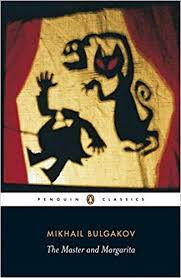I shared this reading list on FB as separate posts, however I think they would look good together too. Sharing these 7 unique books which helped me appreciate different things around us.
1. The Ancestor's Tale by Richard Dawkins
The Ancestor's Tale by Richard Dawkins & Yan Wong helps understand and appreciate biological Evolution (and Phylogeny i.e. evolutionary trees). Unlike other evolution books which start from primeval life to present. This comprehensive book journeys backwards in evolutionary history starting from present humans with creatures/pilgrims added in this backward journey. Interestingly, this arrangement is inspired by Geoffrey Chaucer's The Canterbury Tales.
Our shared ancestry with other living beings unravels as the book travels back in time to different nodes/common ancestors. There are 40 exciting rendezvous with interesting creatures/pilgrims before reaching the last common ancestor which the authors call "concestor". It also explains different evolutionary phenomena and relationships throughout the narrative. This book is very informative and a good read at the same time.
2. Middlemarch by George Eliot
Middlemarch by George Eliot (Mary Anne Evans) is one of the longest books I read but never got bored of. It has an interesting mix of experience, narration, dialogues and incidents to discuss issues including status of women, marriage, idealism, self-interest, religion, hypocrisy, politics, etc, most of which are relevant even now.
3. The Bridge Across Forever by Richard Bach
Although it says love story in description, this book is more about a person's journey and contemplation... A book when self help and mindfulness ideas were developing but not bound by it as they were not yet formed. It also represents diversity in many forms which was uncommon for its times. One more thing I like about it is one of the themes about taking ownership for nature surrounding us and need to do so. It attracts contradictory critical reviews and opinions but will be forever a favourite book of mine.
"We're the bridge across forever, arching above the sea, adventuring for our pleasure, living mysteries for the fun of it, choosing disasters triumphs challenges impossible odds, testing ourselves over and again, learning love and love and love!"
4. The Master and Margarita by Mikhail Bulgakov
'Manuscripts don't Burn'
The Master and Margarita is a critique of Soviet society and its literary establishment during Stalin's regime. The story behind the making of this masterpiece is heartening and inspiring too. It was secretly written by Mikhail Bulgakov and was published by his wife 28 years after his death; aptly justifying the quote in the book - 'Manuscripts don't Burn'!
I just started reading it, where the Satan visits an atheist society and its people in Moscow in the 1930s. The story has many cultural references, symbolism, philosophical insights and worth the effort due to the satire, its plot and exploration of different human emotions. It has elements of Magic Realism explored by few of my favourite authors like Gabriel García Márquez, Jorge Luis Borges, Haruki Murakami, and extending the definition a bit also Rowling and Harry Potter. The book basically troubles one in a good way.
5. Feluda by Satyajit Ray
I like these mystery stories because of the candid and quaint descriptions of Indian cities and their characteristics and the endearing lead characters.
6. Little Women by Louisa May Alcott and its Marathi Translation 'Choughi Jani'by Shanta Shelke
I equally like Little Women and its Marathi Translation Çhoughi Jani, which is rare. This book is too well known for description but Joey and Rachel's exchange, in Friends, with 'Joey, Do you want to put the book in the fridge' kind of sums it up (how heartening and engaging it is).
7. A Room with a View by E. M. Forster
A Room with a View by E M Forster; like the name which can be interpreted in different ways; is a comedy, romance and social critique at the same time. A cool British novel which portrays contrasts and dilemmas really well, to quote the book - “Life is easy to chronicle, but bewildering to practice."








No comments:
Post a Comment
Note: only a member of this blog may post a comment.